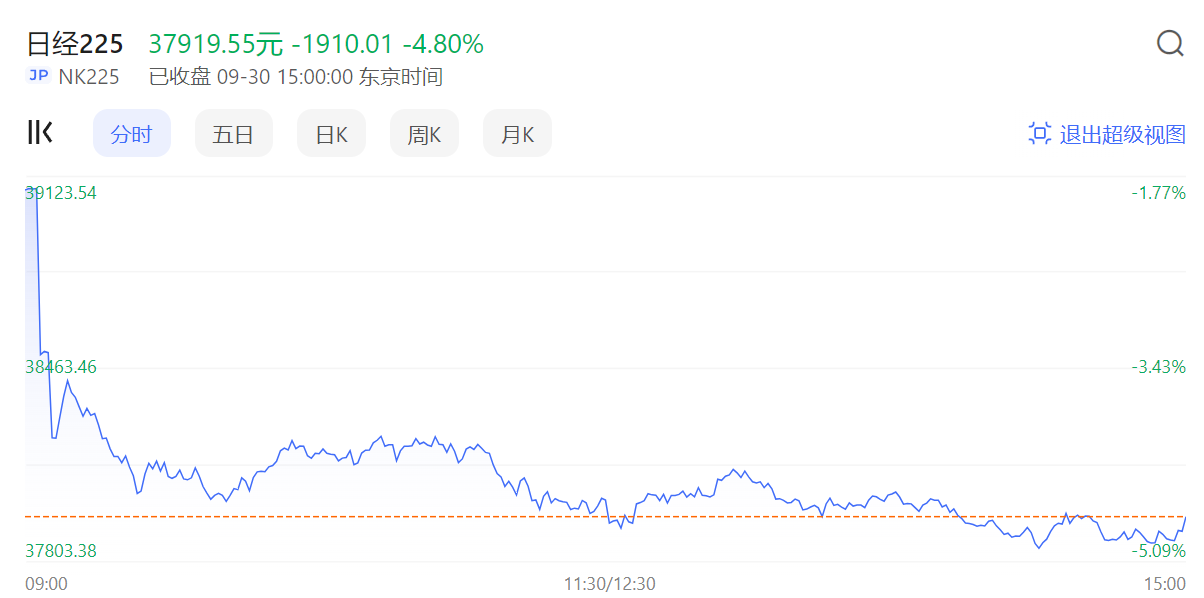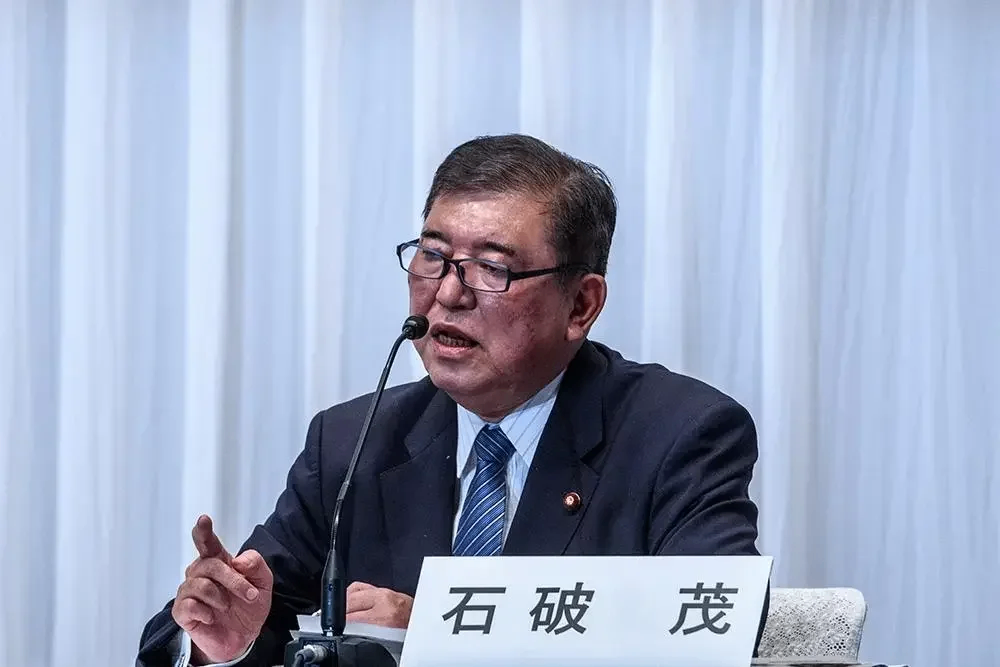石破茂将当选日本首相 日经225周一跌破38000点
日经225指数周一收盘大跌4.8%,跌破38,000点。半导体、汽车、房地产、运输设备等多个行业板块均出现下跌。
周一(9月30日),日经225指数周一收盘大跌4.8%,跌破38,000点。

其中,半导体、汽车、房地产、运输设备等多个行业板块均出现下跌,丰田汽车和东京电子跌近8%,软银集团跌逾7%。与此同时,三井住友、三菱UFJ等银行股表现坚挺。
日元汇率也出现大幅波动。截至发稿,美元兑日元汇率报142.14,较周五东京股市收盘时的146.20出现大幅下降。10年期日本国债收益率上涨4.5个基点,达到0.850%。
外界普遍认为,此次日股下跌与石破茂即将当选日本新一届首相的消息有关。
此前,另一位候选人,日本经济安全保障担当大臣高市早苗被视为热门人选。高市早苗和石破茂在货币政策上看法不太一致。高市早苗曾表态支持日本央行维持低利率,并认为进一步加息是“愚蠢的”;相反,石破茂一直以来都在批评日本央行的宽松政策。
随着石破茂“爆冷”赢得自民党总裁选举,迫使投资者削减了此前因猜测高市将成为日本新首相而建立的头寸。
三菱日联摩根士丹利证券公司高级投资策略师Kohei Onishi表示:“考虑到过去几个交易日市场因对高市早苗获胜的期望而上涨的幅度,今天的下跌并不令人意外。这只是暂时的。投资者买入日本股票是因为对通胀、工资上涨和市场改革的期望,而不是对日本央行宽松的期望。市场将重新关注基本面。”
分析师普遍认为,石破茂胜选后,日本央行加息预期将再度升温。但或许是为了安抚市场,在当选为自民党总裁之后,石破茂在货币政策上的表态较为温和。
当被问及日本央行是否将进一步加息时,石破茂对媒体表示,这是日本央行必须决定的事情,日本央行的职责是实现价格稳定。
他进一步表示:“从政府的角度来看,鉴于当前的经济状况,货币政策必须保持宽松的趋势。”
在财政政策方面,石破茂表示,他将争取早日制定一揽子措施,以缓解生活成本上升对经济造成的打击,重点帮助低收入家庭。
大和证券首席策略师Yugo Tsuboi认为:“周末他(指石破茂)出现在一些电视节目中时,并没有过多谈论货币政策或加税。他可能避免谈论在可能举行的选举前令市场感到紧张的政策。”

·原创文章
免责声明:本文观点来自原作者,不代表Hawk Insight的观点和立场。文章内容仅供参考、交流、学习,不构成投资建议。如涉及版权问题,请联系我们删除。